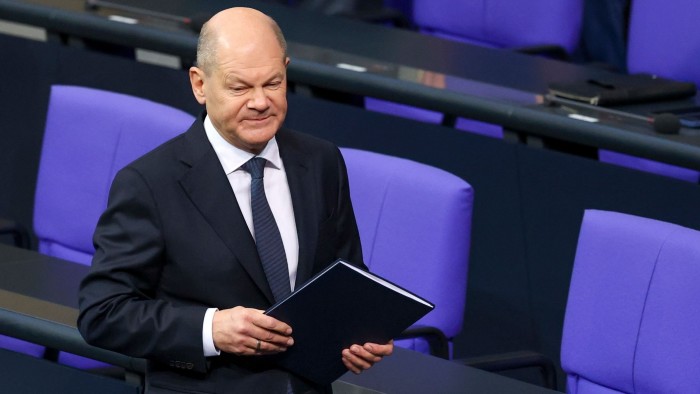Stay informed with free updates
Simply sign up to the German politics myFT Digest — delivered directly to your inbox.
Germany is headed for a snap election after Chancellor Olaf Scholz lost a vote of confidence, ending his fractious coalition government at a time of strain for the eurozone’s largest economy.
Scholz’s defeat on Monday paves the way for the dissolution of parliament ahead of the early elections pencilled in for February 23.
In pre-election polling, the chancellor and his centre left Social Democrats are behind both the opposition CDU and the far-right Alternative for Germany (AfD).
Scholz’s widely anticipated defeat sends Germany to the polls amid a darkening economic outlook, the threat of a trade war with the US and political turmoil elsewhere in Europe.
The Bundesbank warned last week that Europe’s largest economy would grow by just 0.1 per cent in 2025.
Immigration and the debate over military support for Ukraine are other divisive issues in an election in which the AfD and other populist parties hope to make big gains.
The SPD and their coalition partners, the Greens, lost their parliamentary majority last month when Scholz sacked his finance minister, the liberal FDP party chief Christian Lindner.
The collapse of the so-called traffic light coalition followed months of quarrelling over the budget and funding the country’s huge investment needs, defence and social spending.
“Politics is not a game,” Scholz said in a speech to MPs before the vote. “The question is if and how we invest in our country.”
France has also been contending with political turbulence with the defeat of Michel Barnier’s government in a vote of confidence this month.
Other European governments are also preparing for the return as US president of Donald Trump, who has threatened to impose universal tariffs of up to 20 per cent on imports and called for a brokered deal to end the war in Ukraine.
This is a developing story
Read the full article here




